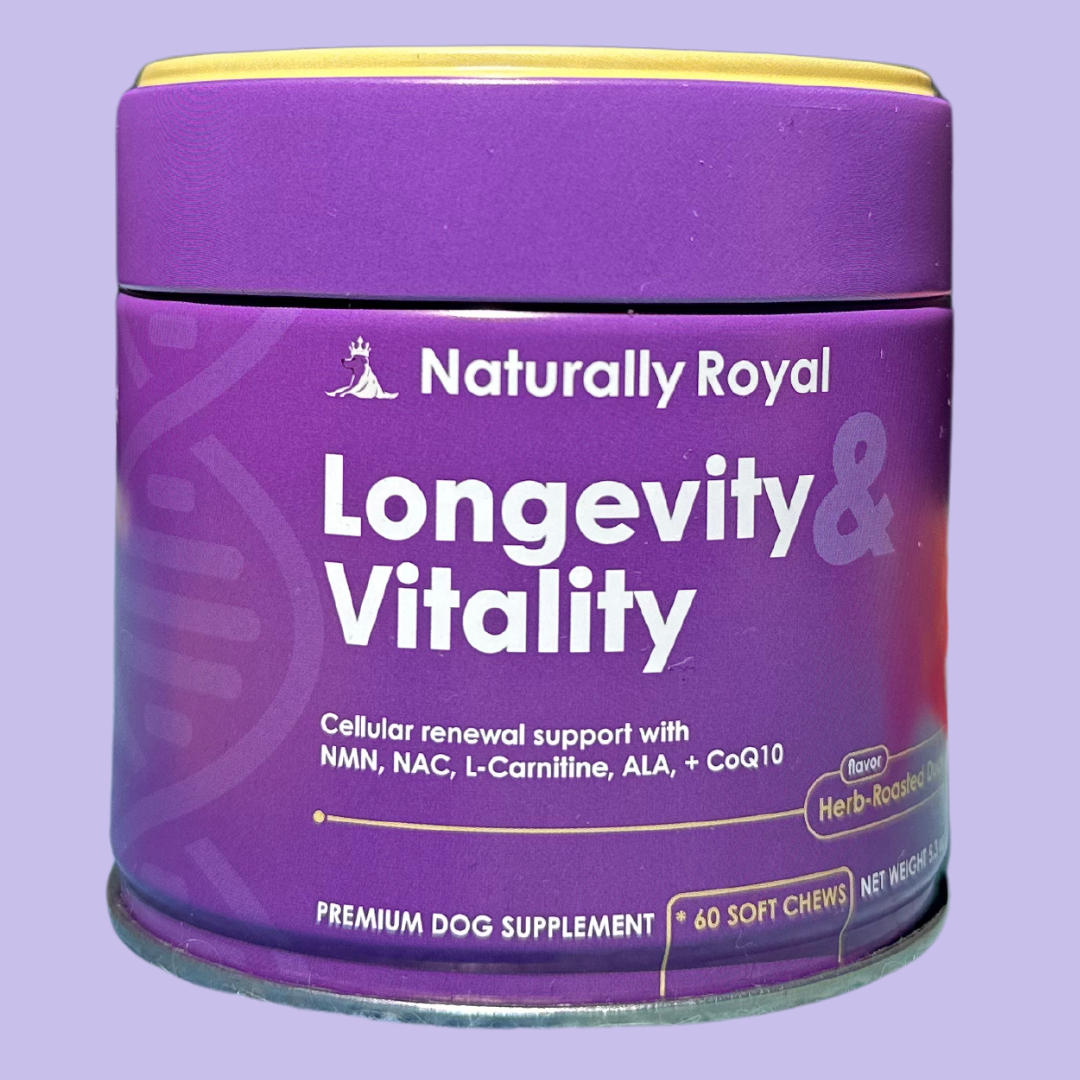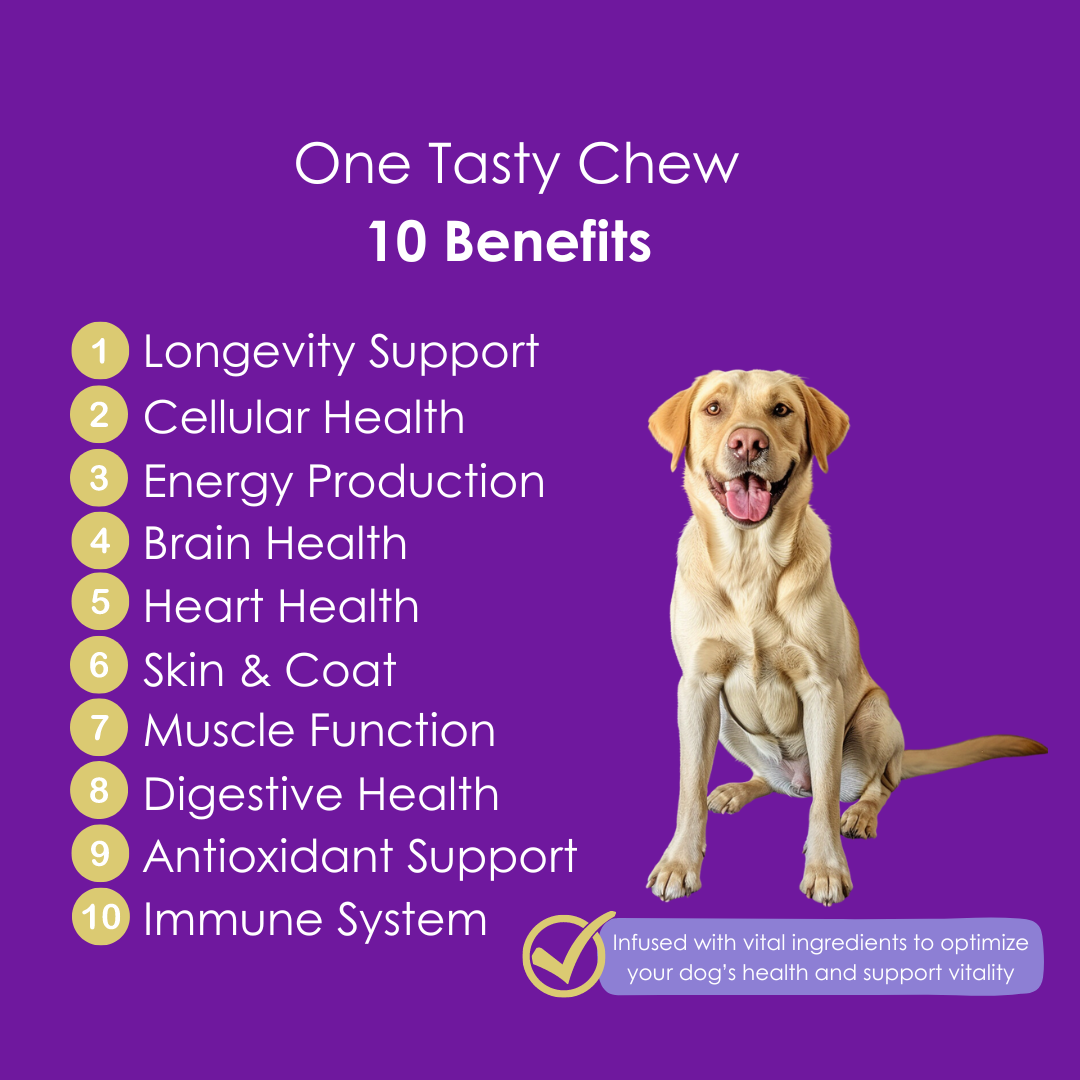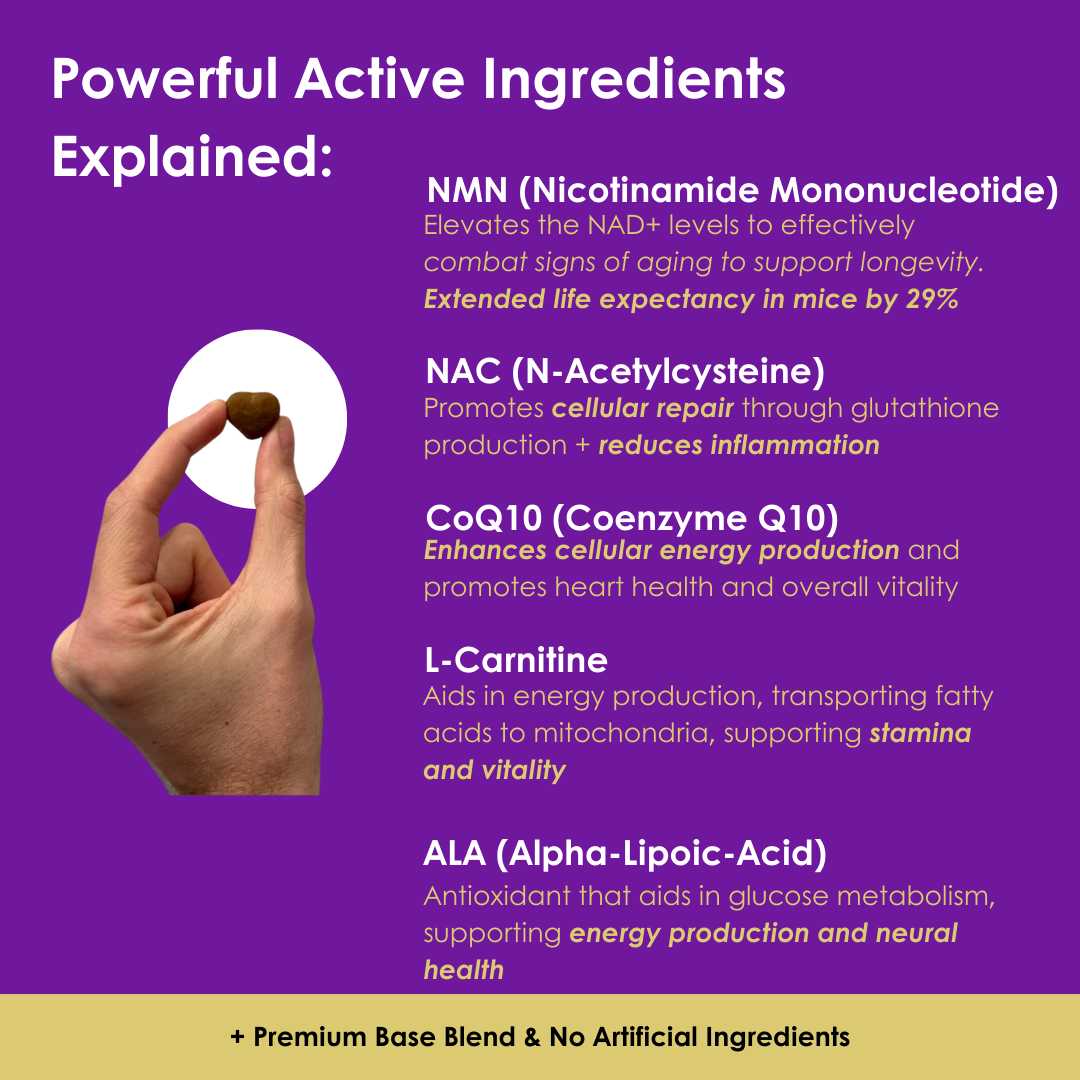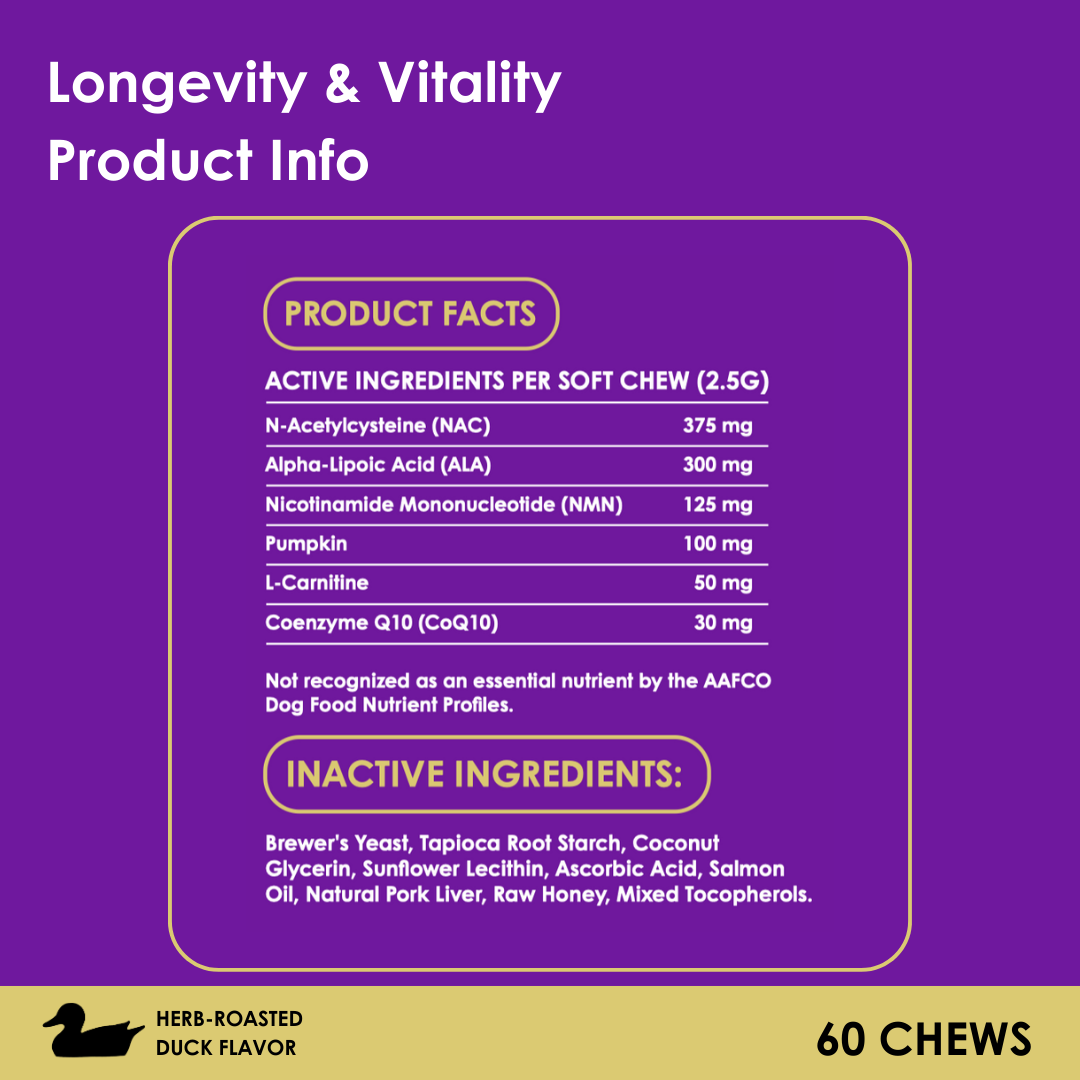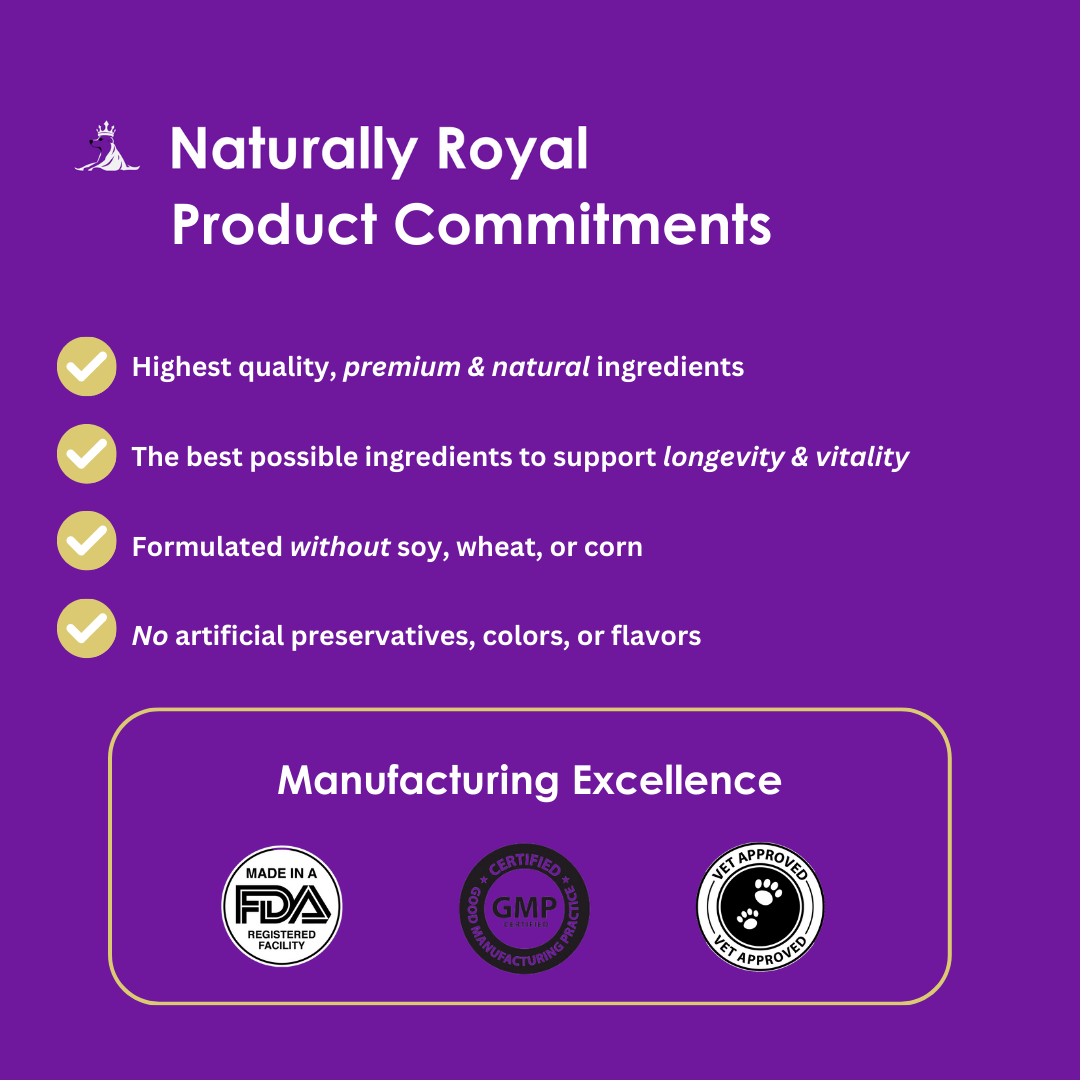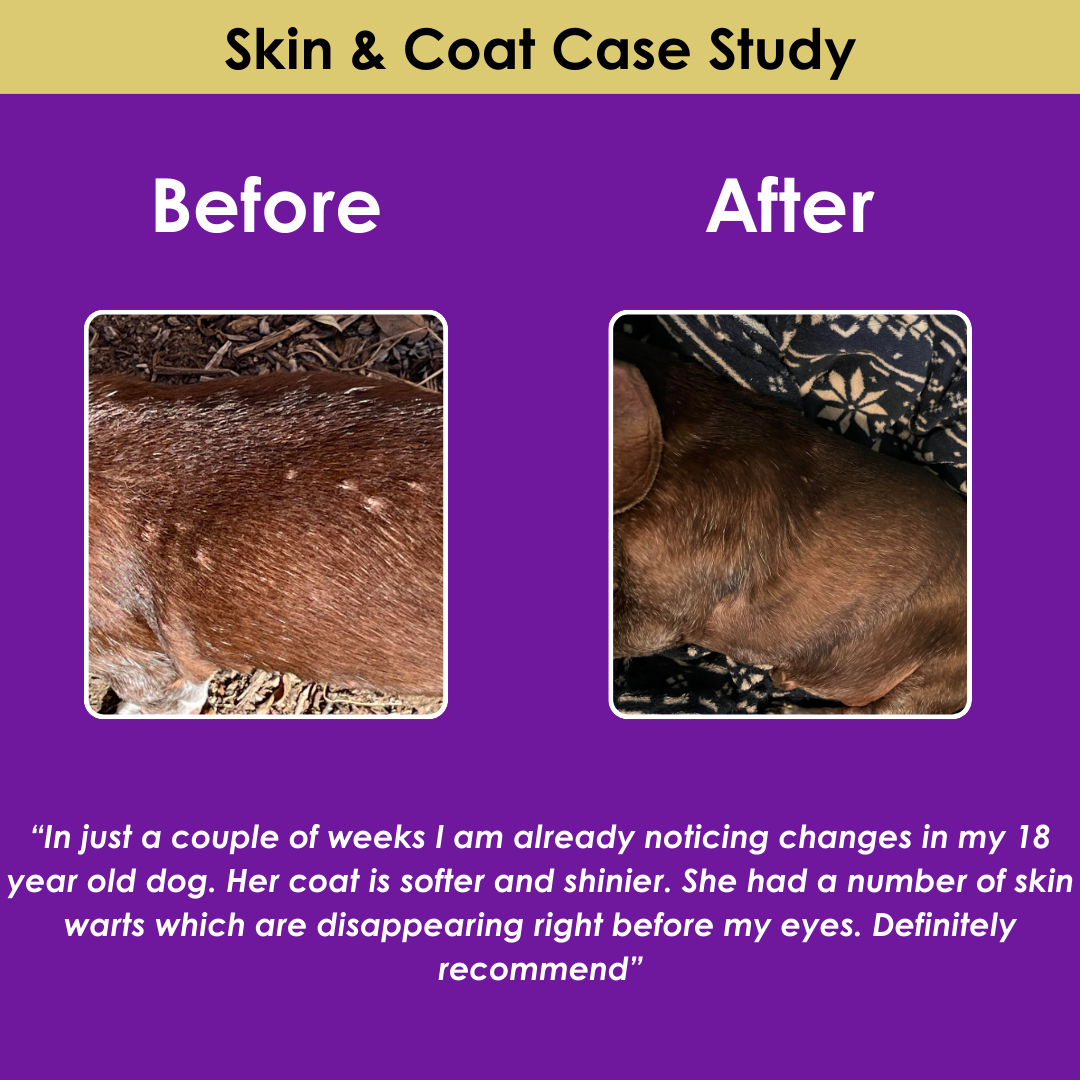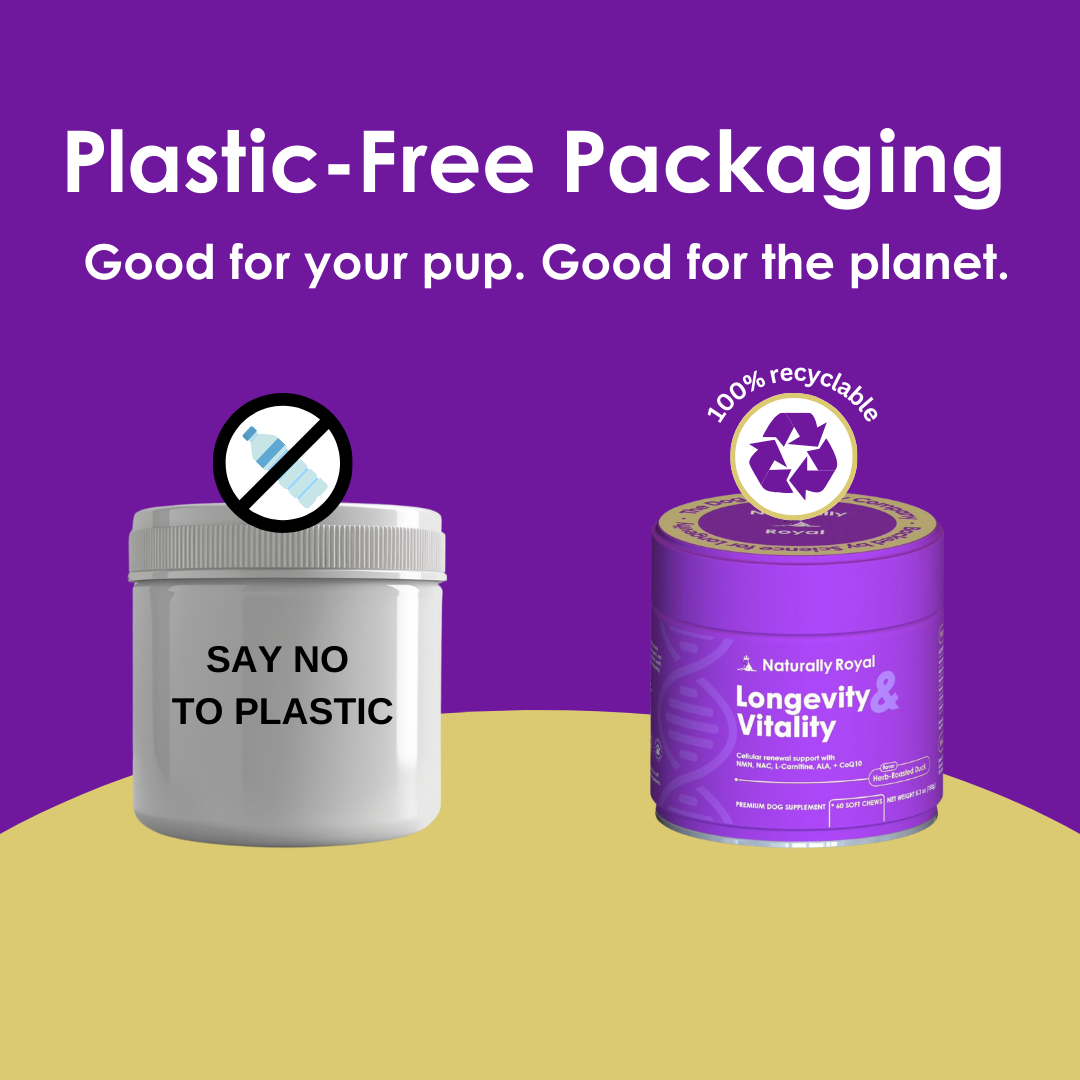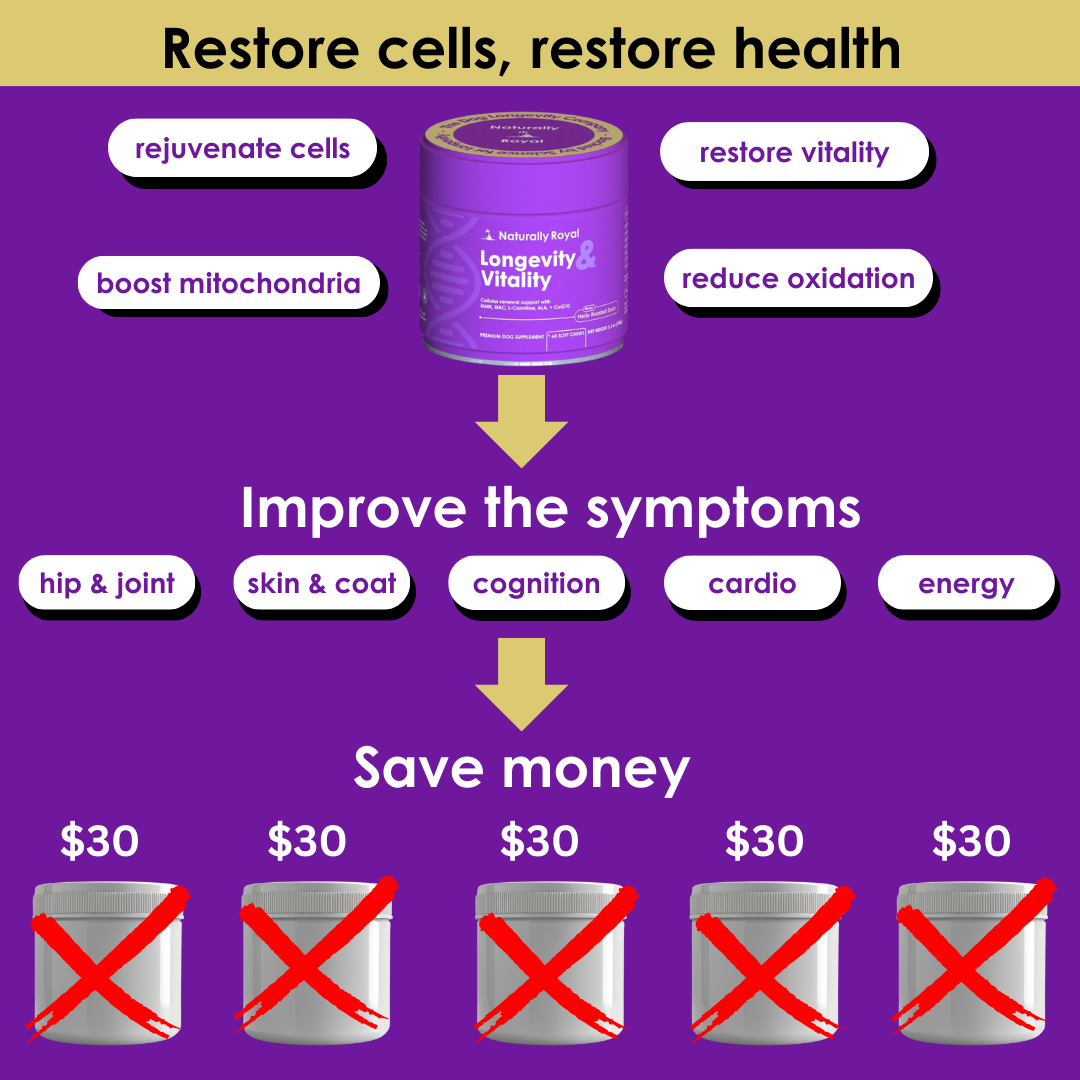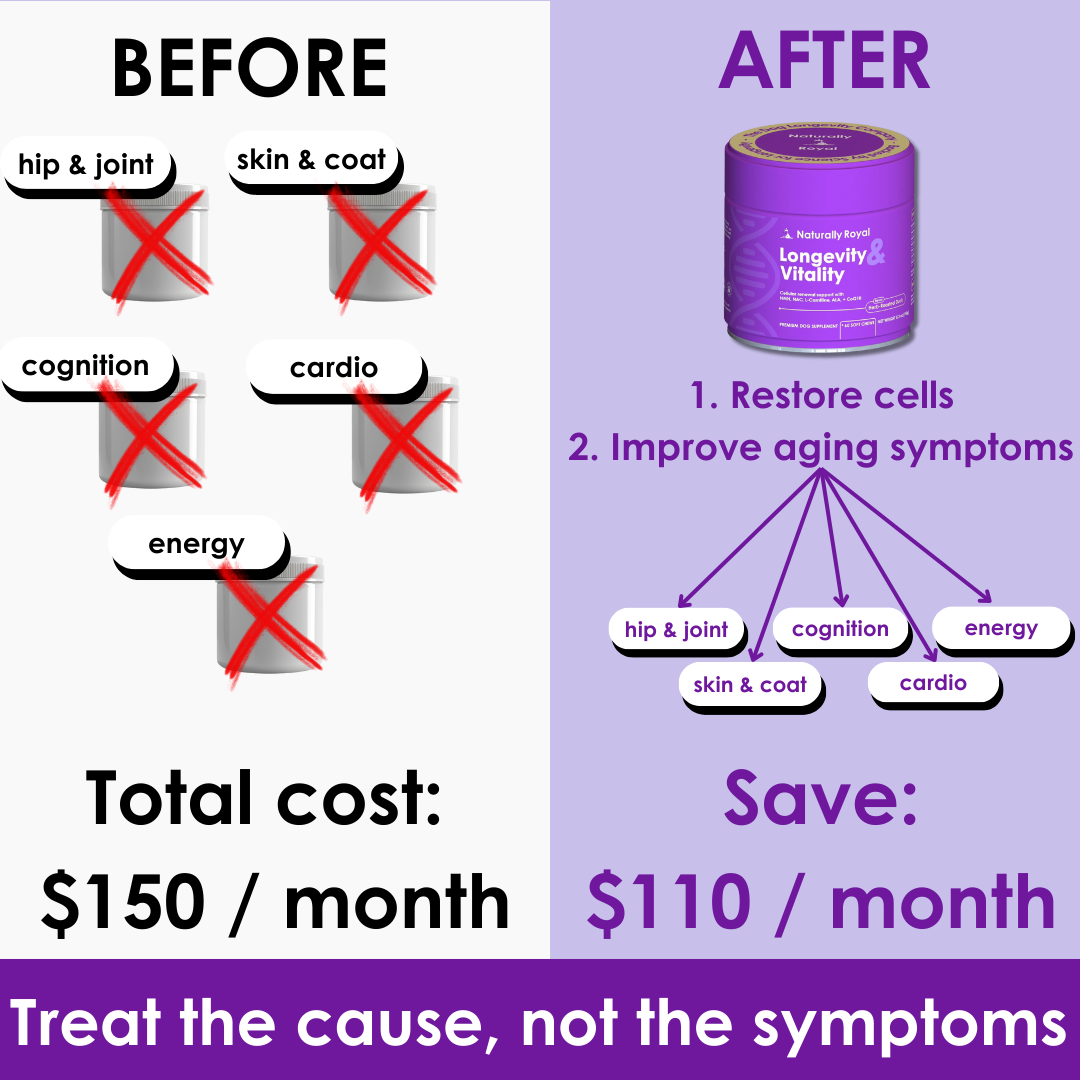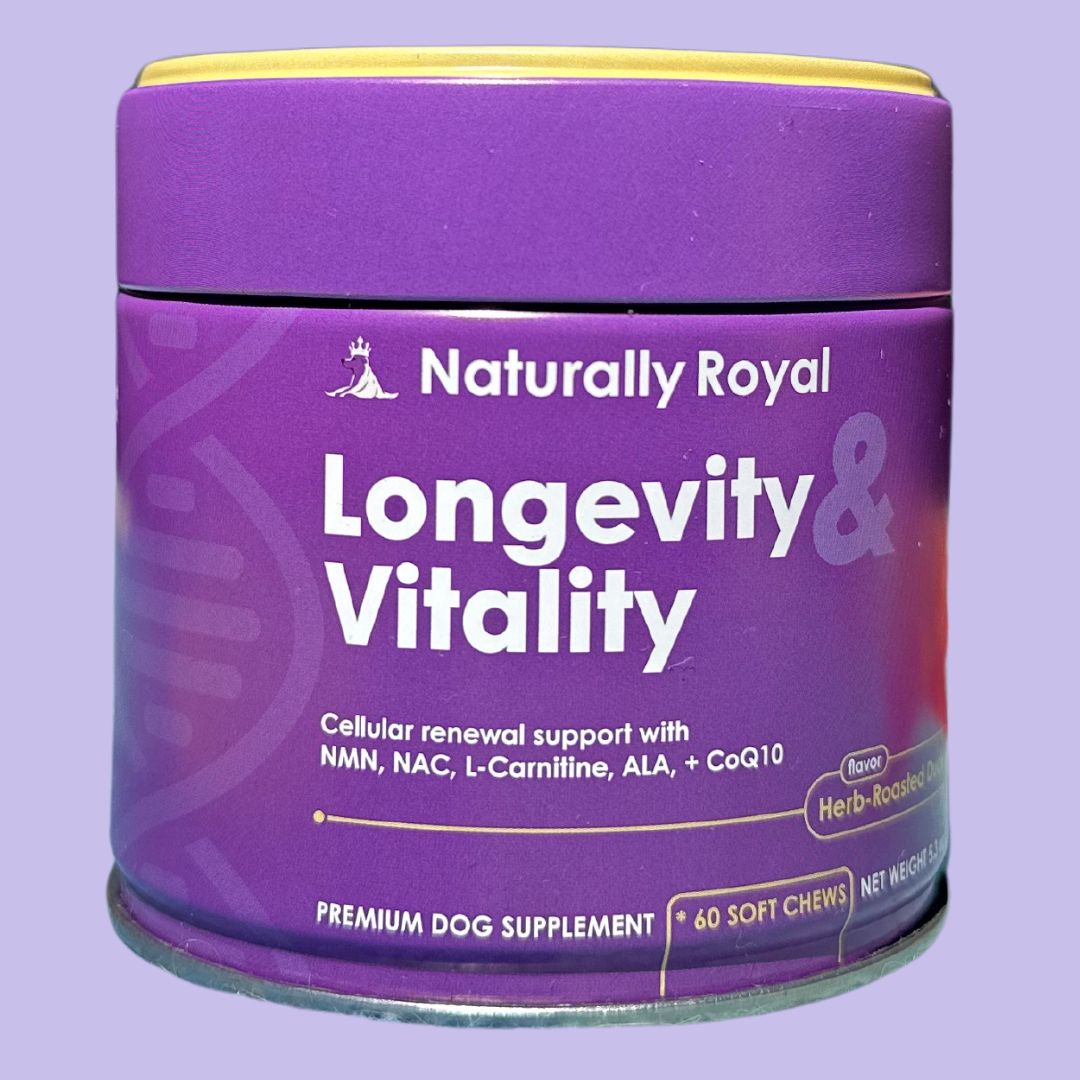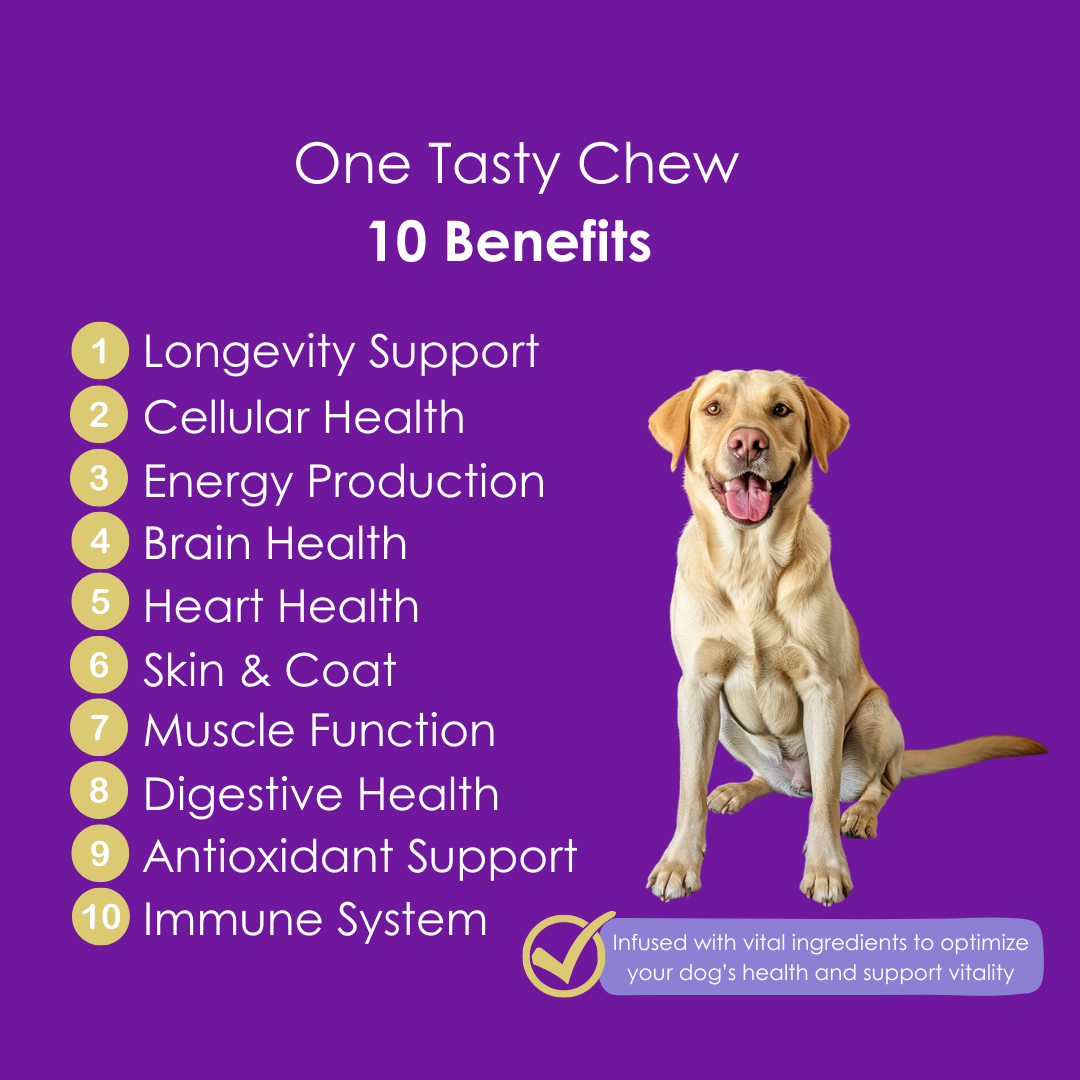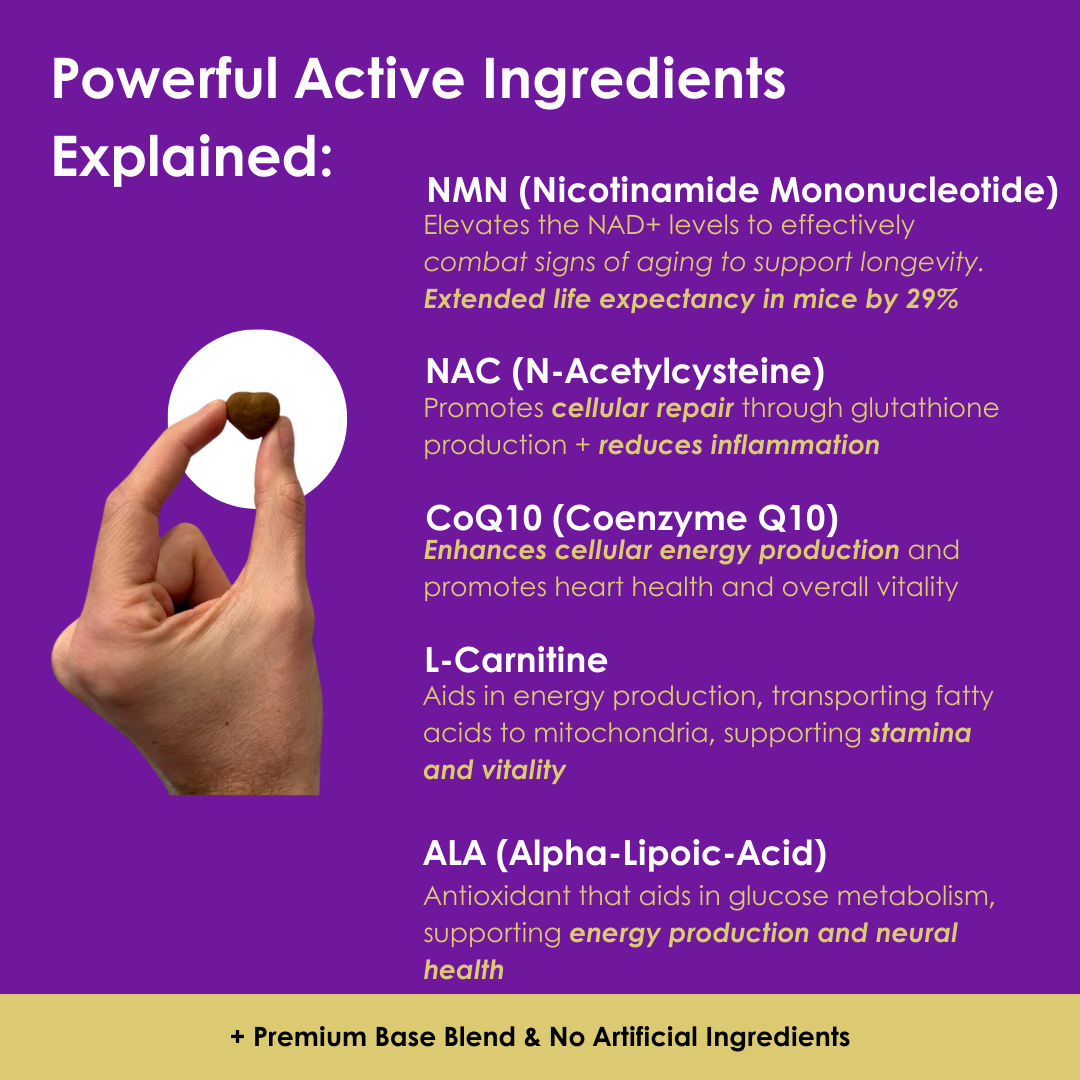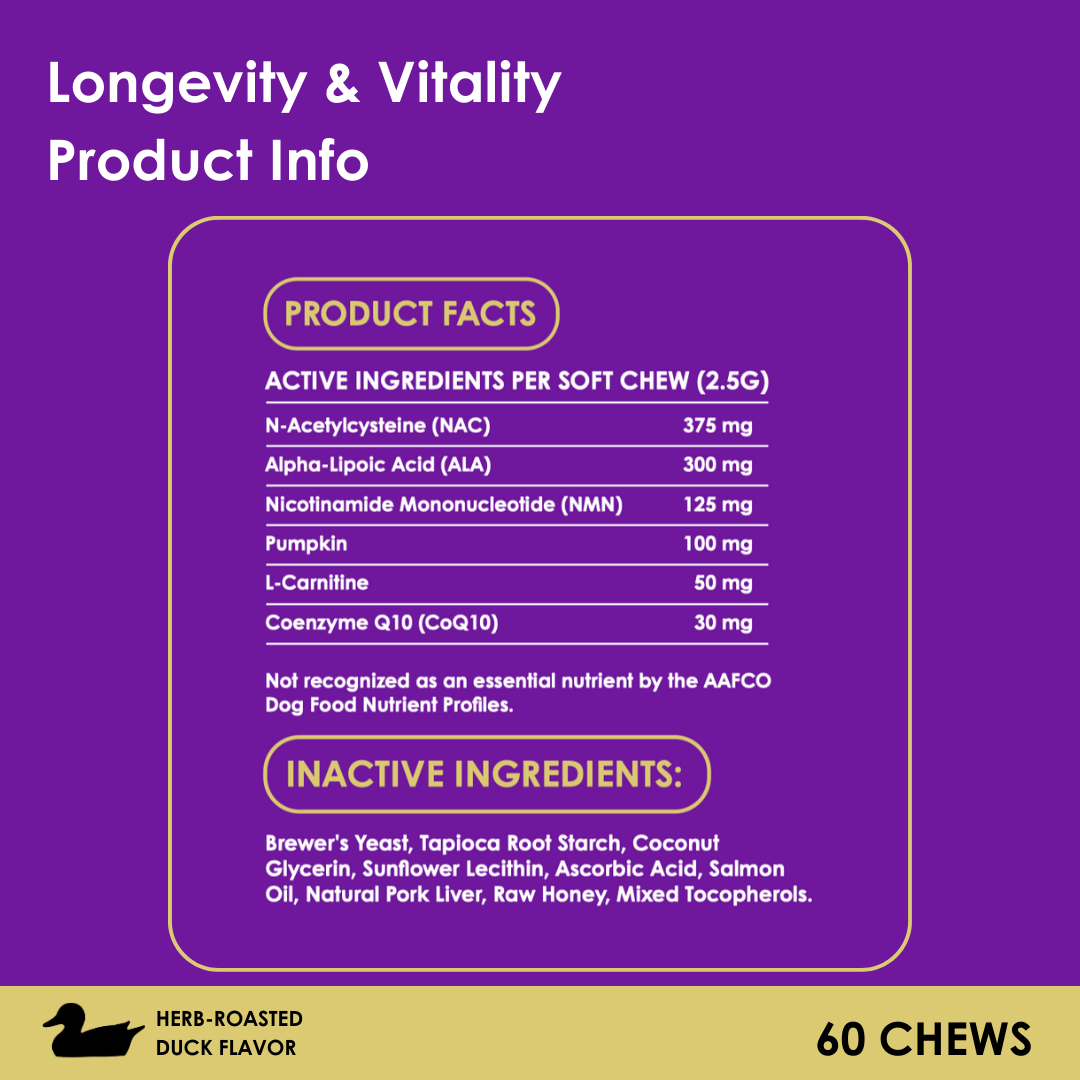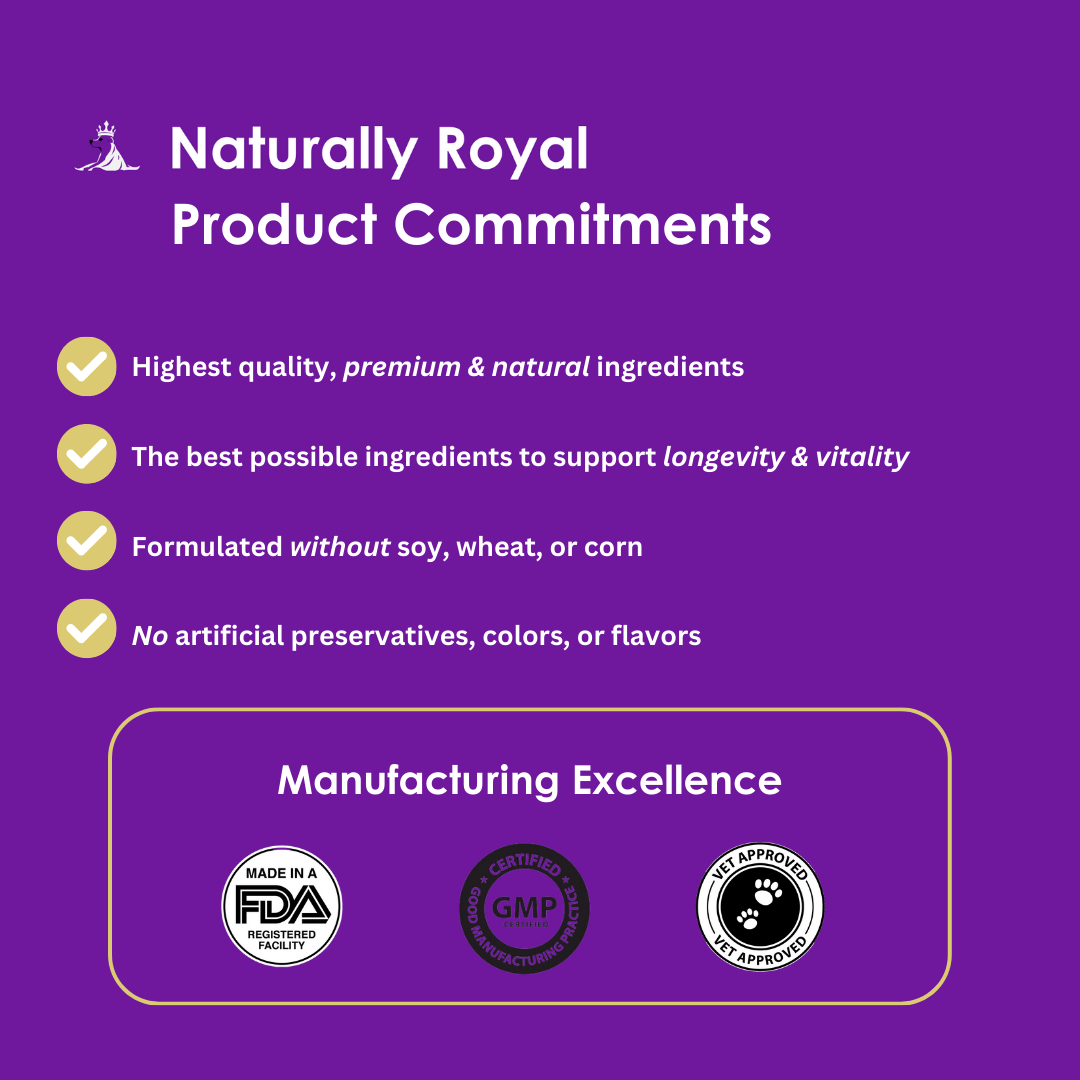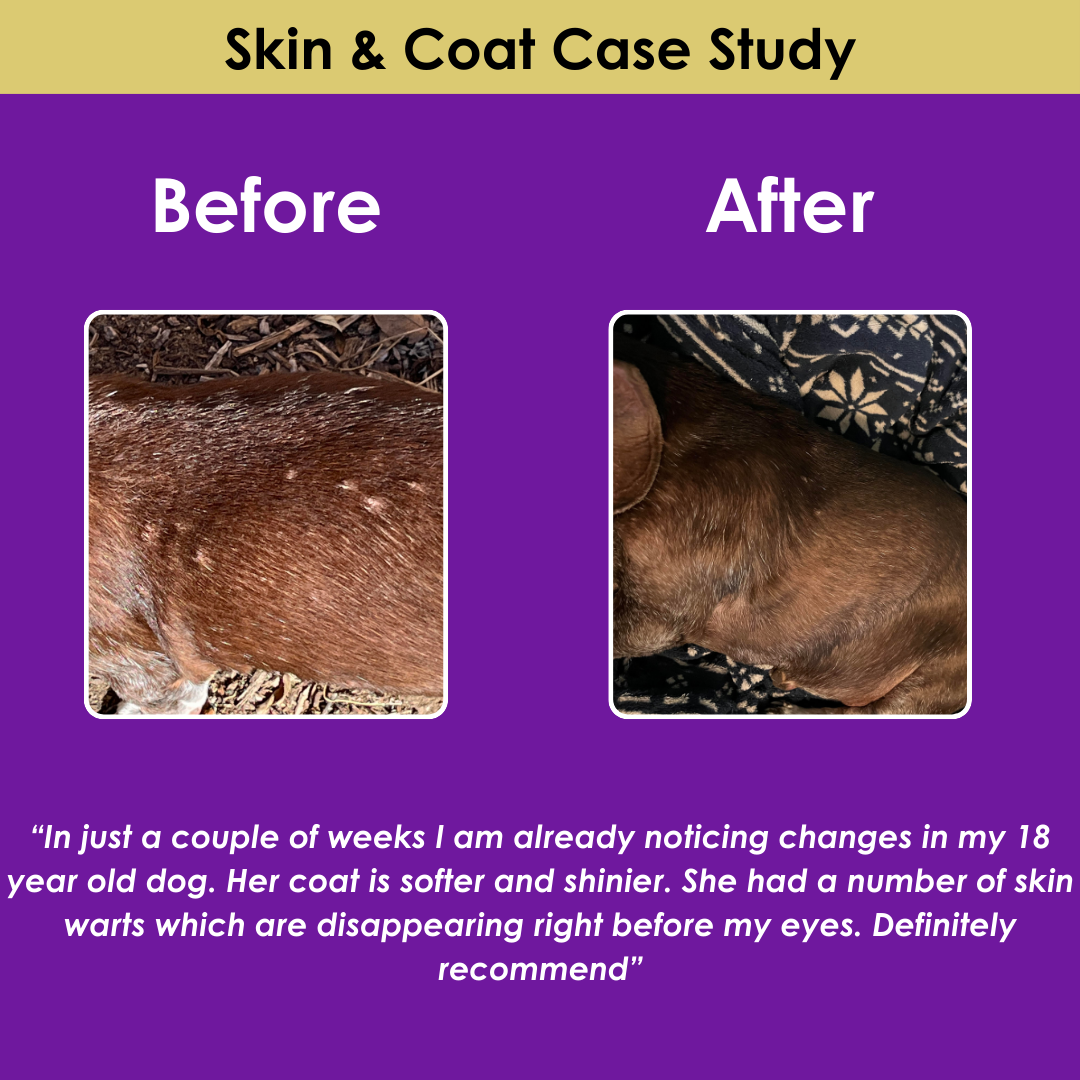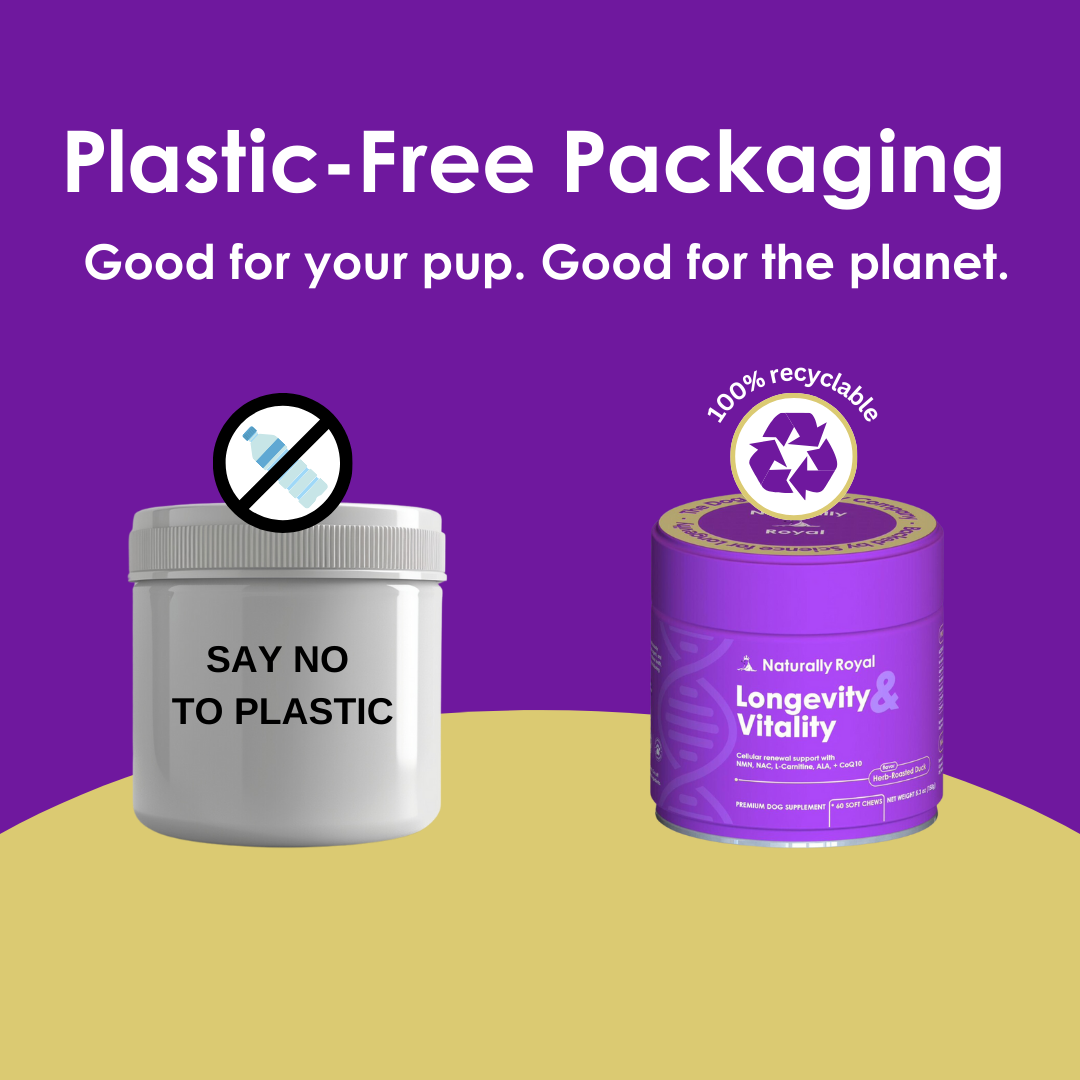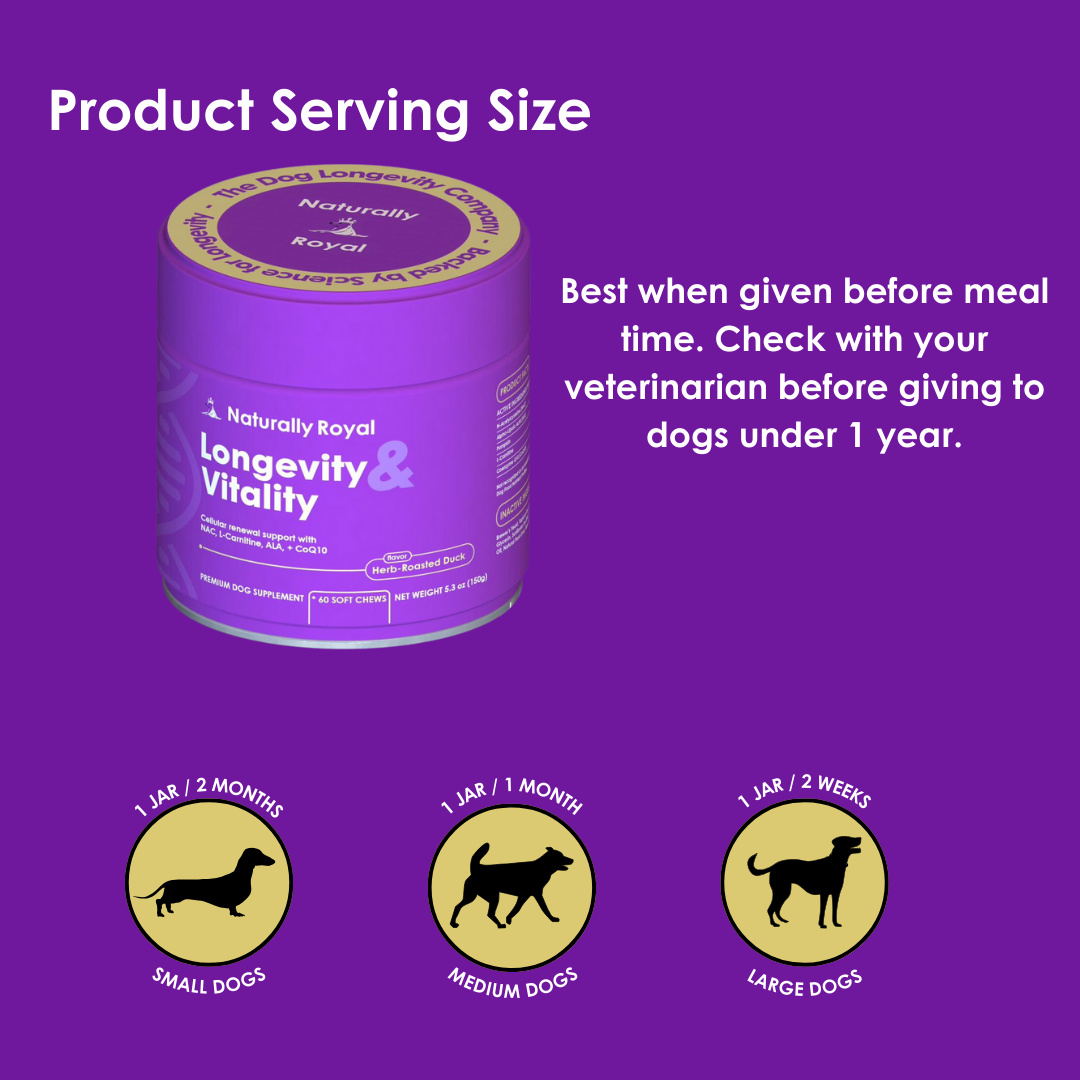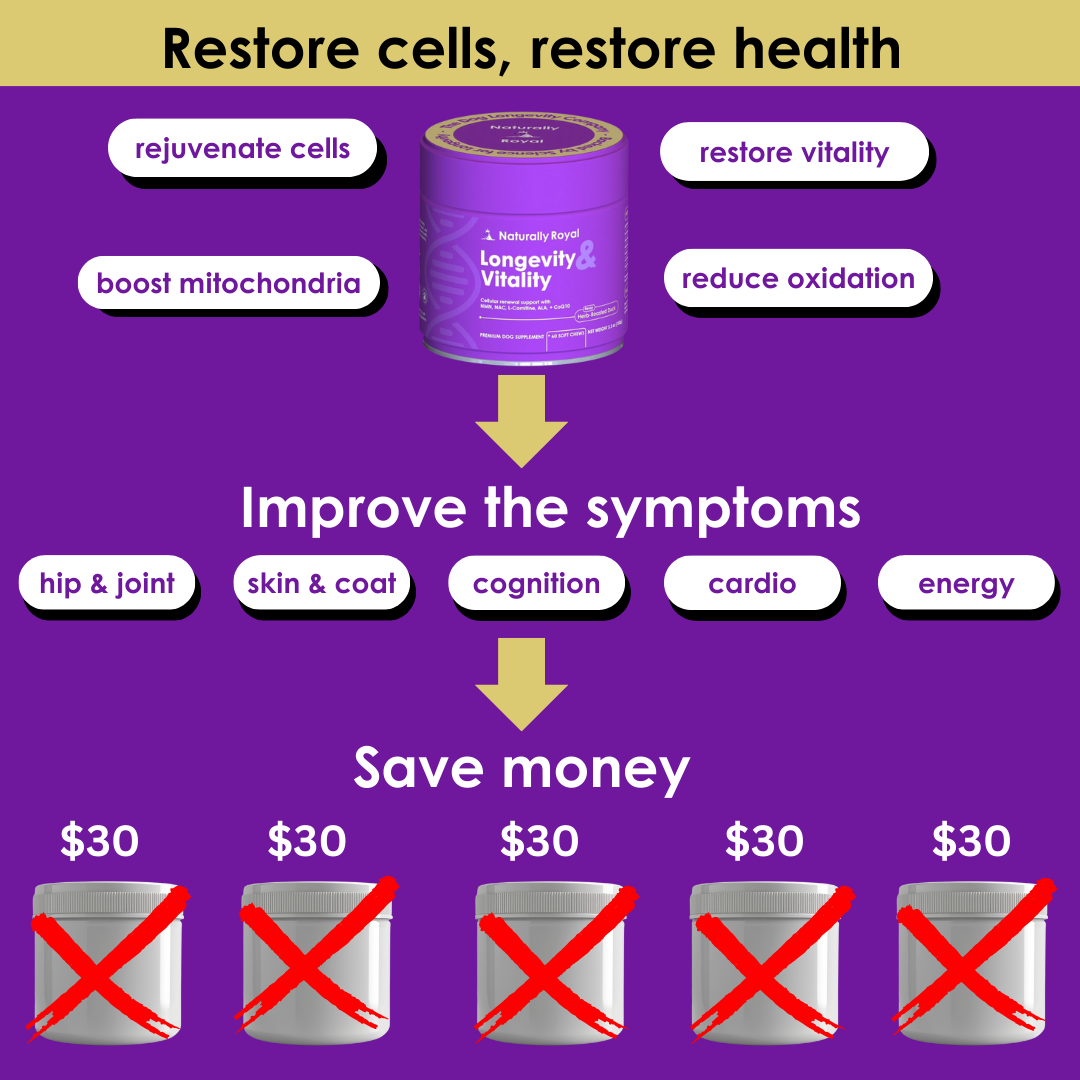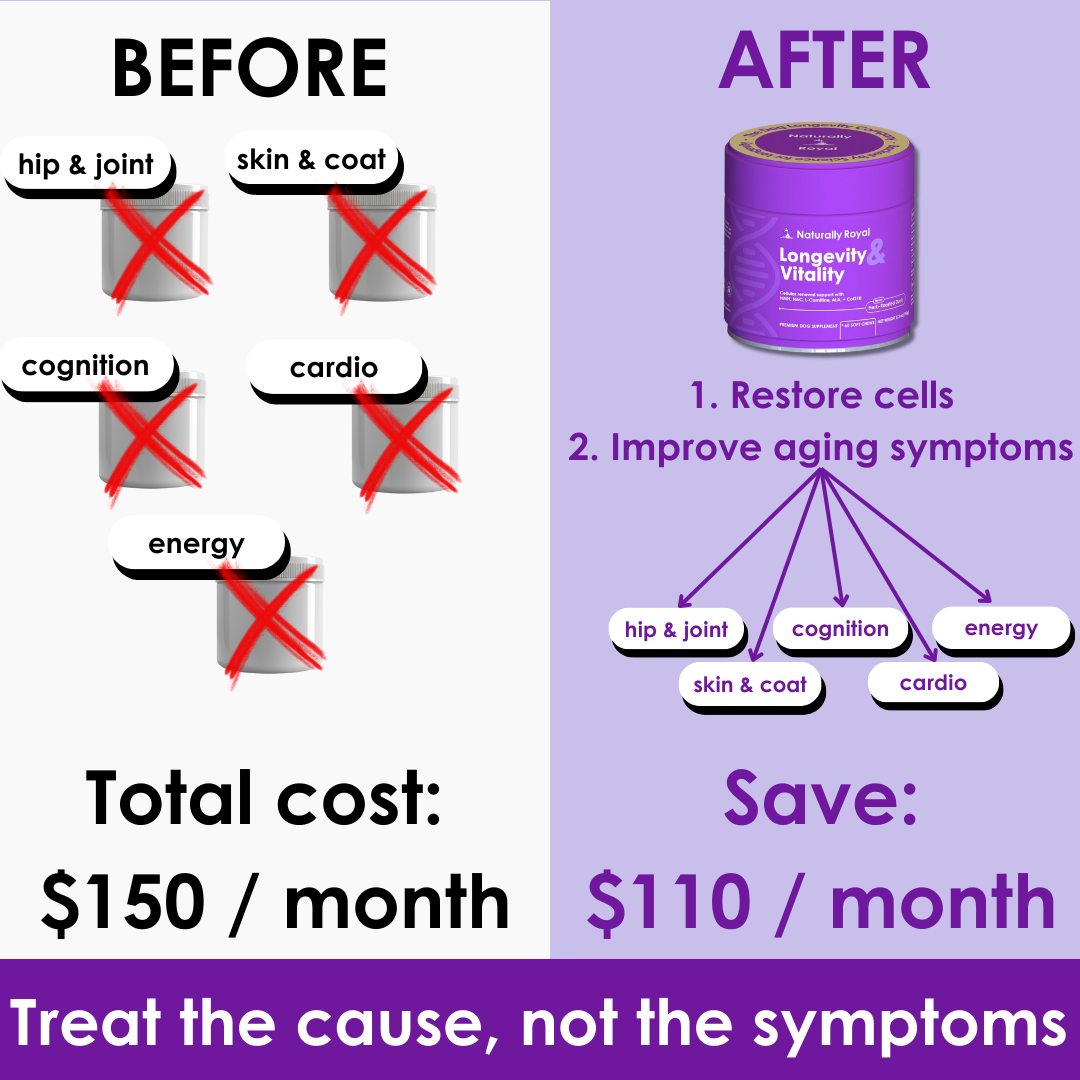FDA Notice: Darwin's Natural Selections Contaminated
The U.S. Food and Drug Administration (FDA) recently issued a serious advisory regarding six lots of Darwin’s Natural Selections raw cat and dog food products, which tested positive for Salmonella and Listeria monocytogenes (L. mono). These bacteria can cause significant illness in both pets and humans, leading to concerns about food safety, proper handling, and the long-term impact on your dog's health and longevity.
Let's dive into the details of the FDA’s advisory, the risks associated with contaminated pet food, and what pet owners can do to protect their dog’s health and longevity:
The FDA’s Advisory: What Happened?
In September 2024, the FDA tested six samples of Darwin’s Natural Selections raw food products, finding that five tested positive for Salmonella and one tested positive for L. mono. The products in question were manufactured by Arrow Reliance, Inc. and include both cat and dog food products, specifically the Antibiotic & Grain-Free Chicken Recipes for both species.
Despite the contamination findings, Arrow Reliance did not issue a recall for the affected products, leaving the burden on consumers to discontinue use and properly dispose of the contaminated food. The FDA has strongly advised pet owners to check lot numbers, stop feeding the affected food, and take precautionary cleaning measures to prevent contamination in their homes.
Why Are Salmonella and Listeria Dangerous?
Salmonella and Listeria are both dangerous bacteria that can severely impact the health of pets and humans. The risks for your dog’s health and longevity come from both immediate illness and long-term complications.
Salmonella Risks for Dogs
Salmonella infections in dogs can cause a variety of symptoms including:
- Vomiting
- Diarrhea (sometimes bloody)
- Fever
- Loss of appetite
- Lethargy
Some dogs may be asymptomatic carriers, meaning they can shed the bacteria in their feces, potentially contaminating the environment and exposing humans to infection. Prolonged or severe cases of Salmonella infection can lead to dehydration, organ damage, and in extreme cases, death. Long-term complications may also arise, particularly if the infection isn’t detected early.
Listeria Monocytogenes Risks for Dogs
Listeria infections in dogs are less common, but they can be extremely serious when they do occur. Symptoms of L. mono infection can include:
- Severe diarrhea
- Fever
- Anorexia (loss of appetite)
- Respiratory, muscular, and neurological issues
In more extreme cases, Listeria can lead to organ failure, pregnancy loss, depression, and even death. Like Salmonella, Listeria can be shed in a dog’s feces even if they don’t show symptoms, posing a serious health risk to humans.
Impact on Your Dog’s Longevity
Infections caused by contaminated food can significantly shorten your dog’s lifespan if not properly addressed. Even with treatment, prolonged exposure to pathogens like Salmonella and Listeria can lead to chronic health conditions, weaken your dog’s immune system, and compromise their quality of life.
Immediate Health Risks
- Severe gastrointestinal distress can lead to rapid dehydration and malnutrition, which, if not managed quickly, can cause long-term health problems.
- In extreme cases, infections may cause irreversible organ damage or death.
Long-Term Health Impacts
- Chronic Infection: Repeated infections or ongoing bacterial shedding can place significant strain on your dog’s body, particularly their kidneys, liver, and digestive system. Over time, this can contribute to organ dysfunction and reduced vitality.
- Weakened Immune System: Repeated illnesses can compromise your dog’s immune system, making them more susceptible to future infections and reducing their ability to recover from illness.
- Longevity: Ensuring that your dog’s food is free from contaminants is crucial for extending their lifespan. Avoiding prolonged exposure to harmful pathogens like Salmonella and Listeria is key to keeping your dog in peak health for as long as possible.
What Should You Do?
If you are a dog parent using Darwin’s Natural Selections pet food, it’s important to take immediate action to protect your dog’s health:
- Stop Feeding the Affected Products: Check the lot numbers on your dog’s food and discontinue use if it matches any of the affected products.
- Dispose of the Food Properly: Ensure that contaminated food is sealed and disposed of in a manner that makes it inaccessible to other animals or wildlife.
- Disinfect All Surfaces: Clean and disinfect any surfaces that may have come into contact with the contaminated food, including your dog’s bowls, storage containers, and the refrigerator or freezer where the food was stored.
- Monitor Your Dog’s Health: Keep a close eye on your dog for any signs of illness. If they exhibit symptoms such as vomiting, diarrhea, fever, or lethargy, consult your veterinarian immediately. Your vet may recommend testing your dog’s feces for signs of infection.
- Consider a Different Food Source: If you are concerned about the safety of your dog’s current food, you may want to switch to a trusted brand with a proven track record of safety and transparency.
Prevention and Vigilance for Long-Term Health
To ensure your dog’s health and longevity, it’s essential to stay vigilant about the quality of their food. Contaminated pet food poses a serious threat to your dog’s well-being, and ensuring that you are feeding them safe, high-quality food is one of the best ways to help them live a long, healthy life.
Maintain a Regular Health Check-Up Routine
Even if your dog isn’t showing any signs of illness, regular veterinary check-ups and routine fecal exams can help catch any infections or health issues early.
Be Proactive with Food Safety
Always check lot numbers and recall announcements from trusted sources like the FDA. Investing in high-quality, certified pet food can significantly reduce the risk of foodborne illnesses.
Conclusion
The FDA’s recent announcement about Salmonella and Listeria contamination in Darwin’s Natural Selections pet food highlights the importance of vigilance when it comes to your dog’s diet. Pet owners must act quickly to discontinue use of contaminated products and monitor their dog’s health closely. Proper food safety practices, along with regular health check-ups, are essential for ensuring your dog’s longevity and overall well-being. By keeping your dog’s diet safe and nutritious, you can help them live a longer, healthier life.


